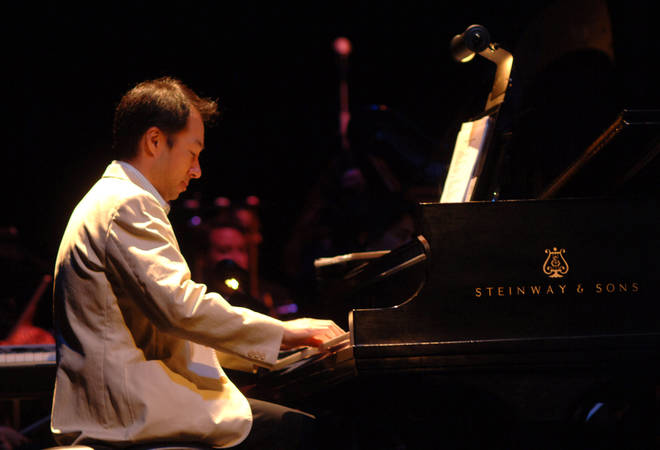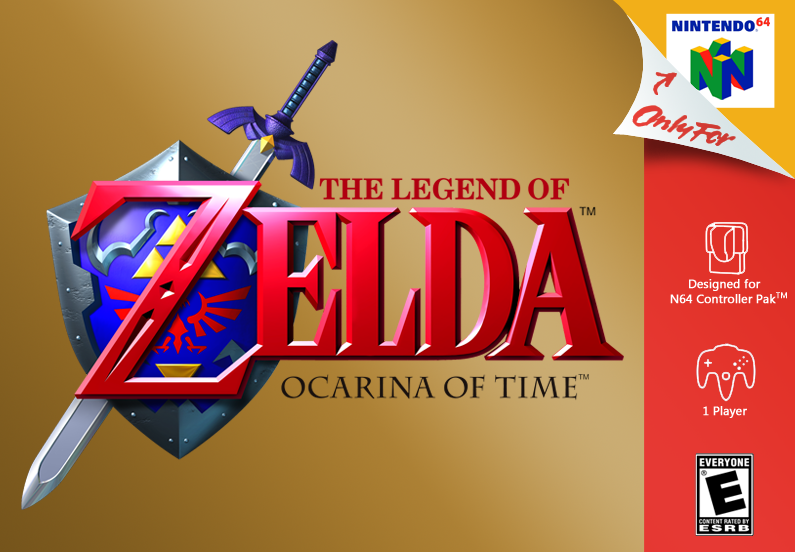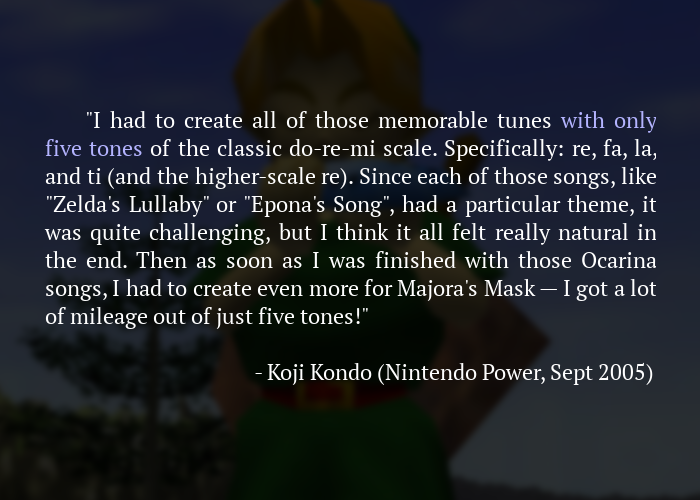
Game Devs:
Do you want to write music for your games?
I've studied game music for over a decade, and composed hundreds of my own. I'll tell you everything you need to know.
Here are 4 steps to get you started, with free resources: 🧵👇
Do you want to write music for your games?
I've studied game music for over a decade, and composed hundreds of my own. I'll tell you everything you need to know.
Here are 4 steps to get you started, with free resources: 🧵👇
1. Download a DAW or score editor 🎶
A DAW (Digital Audio Workstation) is used to produce + edit music.
Free DAWs:
- reaper.fm
- bandlab.com/products/cakew…
A score editor is used to write + play back sheet music.
Free score editor:
- musescore.org
A DAW (Digital Audio Workstation) is used to produce + edit music.
Free DAWs:
- reaper.fm
- bandlab.com/products/cakew…
A score editor is used to write + play back sheet music.
Free score editor:
- musescore.org
I recommend a DAW for most situations, but score editors are useful for the pre-production phase.
You can even export the MIDI (note) data from a score editor and import it into any DAW.
It's okay if you can't read music, but it's easy to learn: teoria.com/en/tutorials/r…
You can even export the MIDI (note) data from a score editor and import it into any DAW.
It's okay if you can't read music, but it's easy to learn: teoria.com/en/tutorials/r…
If chiptune music is your interest, you can also use a tracker.
A tracker is used to program MIDI (Musical Instrument Digital Interface) data.
Free trackers:
- deflemask.com
- software.manjaro.org/flatpak/com.gi…
- bambootracker.github.io/BambooTracker/
A tracker is used to program MIDI (Musical Instrument Digital Interface) data.
Free trackers:
- deflemask.com
- software.manjaro.org/flatpak/com.gi…
- bambootracker.github.io/BambooTracker/
2. Download virtual instruments 🎶
Unless you're recording live music, you'll need virtual instruments. Even then, VSTs are useful for demos.
Some DAWs (such as Cakewalk) come with VSTs and mixing plugins of their own, but not all of them do.
Here are some free VSTs: ⬇️
Unless you're recording live music, you'll need virtual instruments. Even then, VSTs are useful for demos.
Some DAWs (such as Cakewalk) come with VSTs and mixing plugins of their own, but not all of them do.
Here are some free VSTs: ⬇️
Free VSTs:
Orchestra:
- projectsam.com/libraries/the-…
- vis.versilstudios.com/vsco-community…
Piano:
- ivyaudio.com/Piano-in-162
- pianobook.co.uk/packs/claustro…
SNES + Genesis:
- williamkage.com/snes_soundfont…
- musical-artifacts.com/artifacts/24
8bit:
- ymck.net/app/magical-8b…
More:
- blog.landr.com/best-free-vst-…
Orchestra:
- projectsam.com/libraries/the-…
- vis.versilstudios.com/vsco-community…
Piano:
- ivyaudio.com/Piano-in-162
- pianobook.co.uk/packs/claustro…
SNES + Genesis:
- williamkage.com/snes_soundfont…
- musical-artifacts.com/artifacts/24
8bit:
- ymck.net/app/magical-8b…
More:
- blog.landr.com/best-free-vst-…
The free options listed above will give you a good place to start, but if you're curious what VSTs your favorite games use, here's a MASSIVE list:
docs.google.com/spreadsheets/d…
docs.google.com/spreadsheets/d…
If you have a little money to sink, I can't recommend Native Instruments' libraries enough. They're all over the FFXIV soundtrack, among many others.
Wait a few weeks for Black Friday; their flagship sampler Kontakt 7 will be on sale for half off.
native-instruments.com/en/products/ko…
Wait a few weeks for Black Friday; their flagship sampler Kontakt 7 will be on sale for half off.
native-instruments.com/en/products/ko…
3. Ease the learning curve 🎶
Music production is a complex, multi-faceted task. Learn by example.
Start by importing MIDI files into your DAW (or scores into your score editor).
Mess with them and see what happens!
- vgmusic.com (MIDI)
- musescore.com/sheetmusic/
Music production is a complex, multi-faceted task. Learn by example.
Start by importing MIDI files into your DAW (or scores into your score editor).
Mess with them and see what happens!
- vgmusic.com (MIDI)
- musescore.com/sheetmusic/
4. Start writing 🎶
I'm serious. Don't worry about music theory right away. It's okay if you don't know C from F𝄫.
Open a new file and place a note; then another. Experiment as often as you can.
The more you do this, the quicker you'll learn. Trust me.
I'm serious. Don't worry about music theory right away. It's okay if you don't know C from F𝄫.
Open a new file and place a note; then another. Experiment as often as you can.
The more you do this, the quicker you'll learn. Trust me.
That last step might sound like "draw the rest of the owl", but I mean it. Experience is the BEST teacher. Don't wait; you can learn as you go.
Use MIDIs / scores as examples and see if you can write something similar. Rip 'em off (just don't publish it!)
Use MIDIs / scores as examples and see if you can write something similar. Rip 'em off (just don't publish it!)
A note on music theory:
Music theory is a grammar and a taxonomy of musical ideas. It gives you a lexicon to use when talking or thinking about music, but you don't need it to compose. Most learn their native language before studying its grammar; you can do the same with music.
Music theory is a grammar and a taxonomy of musical ideas. It gives you a lexicon to use when talking or thinking about music, but you don't need it to compose. Most learn their native language before studying its grammar; you can do the same with music.
Koji Kondo has a background in music theory; he went to school for it.
Motoi Sakuraba does not. His music is more complex than most of Kondo's!
I encourage every composer to study music theory, but it is by NO means necessary. That being said...
Motoi Sakuraba does not. His music is more complex than most of Kondo's!
I encourage every composer to study music theory, but it is by NO means necessary. That being said...
If you want to study music theory, here are some resources:
A primer: musictheory.net/lessons
Traditional music theory: openmusictheory.com
VGM music theory:
Ongaku Concept (my channel!): youtube.com/ongakuconcept
8-bit Music Theory: youtube.com/channel/UCeZLO…
A primer: musictheory.net/lessons
Traditional music theory: openmusictheory.com
VGM music theory:
Ongaku Concept (my channel!): youtube.com/ongakuconcept
8-bit Music Theory: youtube.com/channel/UCeZLO…
For those looking to write orchestral music:
There are many instruments in an orchestra and it can be hard to identify them by ear if you're a beginner. This playlist is an absolute goldmine and helped me a ton:
youtube.com/playlist?list=…
There are many instruments in an orchestra and it can be hard to identify them by ear if you're a beginner. This playlist is an absolute goldmine and helped me a ton:
youtube.com/playlist?list=…
I could go on and on, but that should give you a place to start. :)
If you found this thread helpful:
1. Follow me @atelierjoshua for more on game music
2. RT this thread to help other burgeoning composers
If you found this thread helpful:
1. Follow me @atelierjoshua for more on game music
2. RT this thread to help other burgeoning composers
https://twitter.com/atelierjoshua/status/1586691940233486339
I'm seeing comments from composers telling devs to just hire them if they want music — I'm a composer too, I understand. But this thread isn't for us. :)
We all start somewhere, and many devs enjoy writing their own music. Look at Toby Fox, ZUN, or Dan Salvato. You can do it!
We all start somewhere, and many devs enjoy writing their own music. Look at Toby Fox, ZUN, or Dan Salvato. You can do it!
• • •
Missing some Tweet in this thread? You can try to
force a refresh









